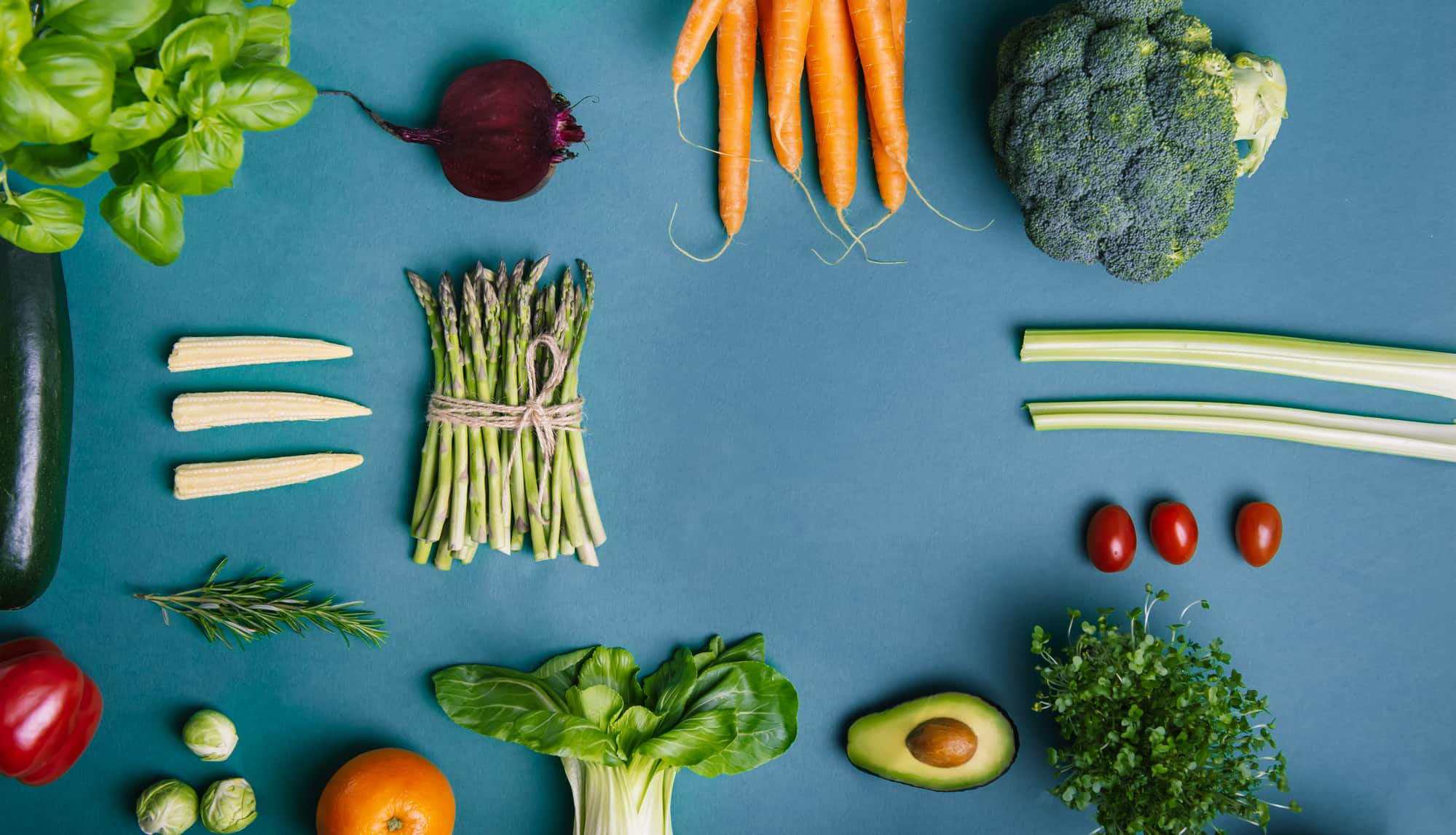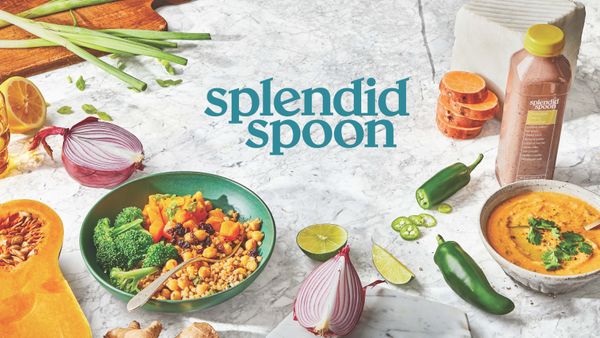Depending on the source, it is believed that vegetarian diets have been around for over a thousand years. With several different varieties of this diet, people have different reasons for such a life choice including for their health, ethics, the environment, and also religious purposes.
So, is vegan and vegetarian the same thing? No, they’re not, but there are similarities.
Vegan diets may not have been around for as long as vegetarian diets but they are fast becoming increasingly popular. In the following article, we’re going to take a look at the most significant similarities and differences between the two.
What is a vegetarian diet?
A vegetarian is someone who does not eat any meat, poultry, fish, shellfish, or by-products of animal cruelty. This diet mainly consists of fruit, vegetables, nuts, pulses, and grains but whether or not dairy is added to this depends on the type of vegetarian diet the person follows.
Here are some of the most common types of vegetarian diets:
- Lacto-Ovo – These are vegetarians who do not eat meat, but do eat dairy and egg.
- Lacto – These are vegetarians who do not eat meat and eggs, but do eat dairy.
- Ovo – Vegetarians who do not consume meat or dairy, but do eat eggs.
- Vegans – A vegetarian diet with no meat, dairy, egg, fish, or shellfish.
A vegetarian who does not consume meat but does eat fish is called a pescetarian. Some people only follow a vegetarian diet part-time. These people are known as flexitarians.
Other types of vegetarian diets
The list continues. Although some do not consider the following to be vegetarian, many people follow these lifestyles:
- Pollotarian – This is someone who eats plant-based food but will eat poultry like chicken and turkey. Much like a pescetarian, a pollotarian may add dairy and eggs into their diet.
- Pesco-pollotarian – This is someone who eats mostly plant-based food, but eats chicken and fish. Essentially, they are cutting out red meat.
What is a vegan diet?
A vegan diet is similar to a vegetarian diet in some ways, but they are more mindful about what they consume, and more food types are off the menu.
Anyone who follows a vegan diet will need to be mindful of animal cruelty and exploitation.
They will also try to avoid any food that is made or prepared at the expense of animal welfare.
A vegan diet means no meat, dairy, eggs, fish, or shellfish, but also other ingredients that come from animal sources including the following:
- gelatin
- honey
- pepsin
- shellac
- Albumin
- carmine
- Casein
- whey
- some types of vitamin D3
The reasons for following a vegan or vegetarian diet can be very similar. However, one of the biggest differences is in how far they will go to avoid certain animal products, and which ones are acceptable.
For example, vegans reduce their intake of saturated fats and cholesterol which can be high in many animal products. This reduces the risk of heart disease and type 2 diabetes.
Both vegans and vegetarians exclude meat for health reasons, and because of animal cruelty but vegans go a little further. They avoid all animal by-products because of the environmental impact these products have.
Why do people go vegan or vegetarian?
Health reasons
Meat is linked to causing different health issues including a higher risk of cancer, type 2 diabetes, and heart disease among others. This is one of the main reasons why people choose to follow a vegetarian diet and will be important to many vegans too.
The way animal agriculture involves hormones can impact health, often in women, and may include diseases such as breast cancer, and polycystic ovarian syndrome.
Depending on how well the diet is planned, vegan and vegetarian diets can be richer in certain nutrients, which may help with weight loss and lower blood sugar levels.
Environmental impact
This is more of a concern for vegans as going vegan helps to tackle climate change. Animal agriculture is responsible for a large portion of all greenhouse emissions but also deforestation, acid rain, and water degradation.
Taking meat off the table and other animal products reduces their mental impact and relieve pressure on the world’s natural resources.
Both vegan and vegetarian diets have a lessened impact on the world. They are linked to reduced global warming, reduced methane, and reduced destruction of wildlife habitat.
Ethics
When it comes to ethics, many vegans and vegetarians make their choice based on how the meat industry kills animals for food. Vegetarians consider it acceptable to consume animal products such as dairy and eggs but usually pay attention to the animals’ living conditions.
However, vegans believe humans have no right to exploit animals for any form of food, clothing, or entertainment. This is why they avoid all animal by-products including dairy, eggs, but also honey, and gelatin.
Veganism: More than a diet
For a vegetarian, their diet may be for health reasons and animal cruelty, but vegans choose to avoid more animal products, and for different reasons other than diet.
Their strong feelings about animal rights mean vegans may avoid clothes made from certain materials including wool, leather, silk, and suede. Vegans will also boycott companies that test on animals, and ingredients such as palm oil which is procured by companies that clear the rainforest to produce.
Vegan vs vegetarian: which is healthier?
The Academy of Nutrition and Dietetics says that both vegetarian and vegan diets are fine for all life stages as long as the diet is planned appropriately; Both diets mean a reduction in essential nutrients such as omega-3, vitamin D, vitamin B12, and calcium.
A lack of any of these can impact physical and mental health and since both diets have lower intakes, taking supplements is often recommended. However, vegetarians tend to consume more calcium and B12 than vegans if they introduce dairy and egg into their diet.
Still, it is important for both vegans and vegetarians to carefully plan their diet to ensure they are getting the required nutrition. Fortified foods are an option. Many kinds of cereal, for example, contain iron, vitamin D, and B12, and supplements for omega-3.
Is vegan and vegetarian the same thing?
The similarities between vegans and vegetarians are clear, but they avoid animal products to a different extent. While there are different types of vegetarians, vegans tend to be stricter and so there is less room for different forms of veganism.
If a vegan diet is too strict for you, then perhaps a vegetarian diet may be easier to follow? It all comes down to what decision you can make and keep to for your reasons. Some may find going vegan more challenging than others, especially since there are more products to cut out.
Both diets are considered safe but may require supplements to increase the intake of important nutrients to live a healthy and fulfilled lifestyle. This is also why planning is important. A balanced diet is a key to avoiding health issues, no matter what lifestyle you follow.
Sources:
- https://pubmed.ncbi.nlm.nih.gov/19562864/
- https://pubmed.ncbi.nlm.nih.gov/24871479/
- https://pubmed.ncbi.nlm.nih.gov/25600902/
- https://pubmed.ncbi.nlm.nih.gov/11424545/
- https://www.nih.gov/news-events/nih-research-matters/risk-red-meat
- https://www.ncbi.nlm.nih.gov/pmc/articles/PMC4524299/
.



